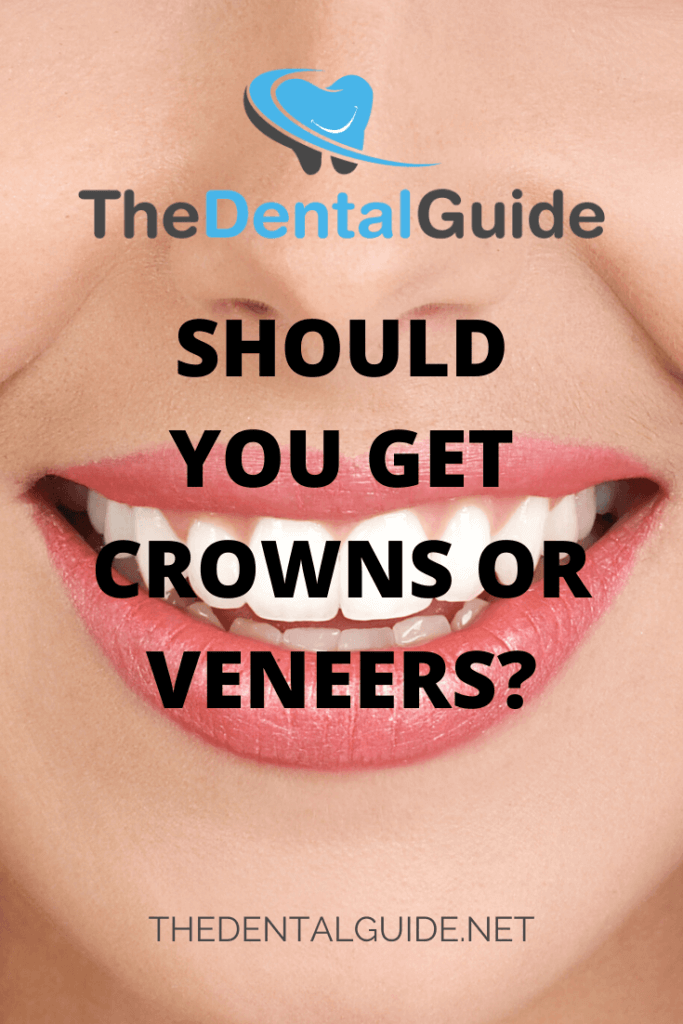Crowns and veneers are used in similar situations, which makes it difficult for some patients, and even some dentists, to decide which one to use and when. There may be times when either will work, and at that point it comes down to a list of pros and cons for those dental procedures. Here we’ll look at instances where it is clear that one or the other should be used and what to consider when the choice is not as clear.
Your dentist will recommend crowns when parts of the tooth or gums are worn away. Veneers are larger than crowns, so they have more of a chance to cause damage to the teeth and gums if there is already damage or wear there. So if the lingual surfaces of the gums are worn off or significantly eroded, then crowns will have to be used instead and veneers will be a poor choice.
When the patient has bruxism, then veneers may not be a good choice either. Bruxism is a grinding of the teeth, and it occurs when the patient rubs their teeth together, usually the upper and lower jaws. This can cause wear on the teeth, and can make it easy to damage veneers if the bruxism recurs.
Veneers need enamel to be able to be retained properly. Without enough enamel in place, the veneers won’t hold. Now there may be cases where the dentist will remove some enamel to make the veneers fit properly, but if there is not enough enamel in the first place, then crowns will obviously be the better option.
One of the advantages of using veneers over crowns is that veneers are less invasive as a procedure. There is zero recovery time, and the patient can go about their day as normal once the short procedure is finished. This usually means that veneers are also cheaper, which makes them a good option for those who have limited funds.
Crowns are often used when the dentist considers the teeth to be in danger. They can usually be called medically necessary, so your insurance may very well cover them. This won’t happen in every instance, and the insurance may ask for a cheaper alternative if one exists, but often this procedure can be covered by standard dental insurance.
Veneers, on the other hand, are less medically necessary. They are typically only aesthetic and cosmetic, which means they do not serve a medical purpose. They can provide some protection for the teeth, but generally they would only be placed on mostly healthy teeth anyway. They are more about enhancing the look of the mouth than providing any real value.
This means they are very unlikely to be covered by a standard dental insurance plan. Some extended plans may cover them, and if the dentist thinks they are medically necessary, then they may also be covered, but in most cases, this is a procedure you would have to pay for on your own.
